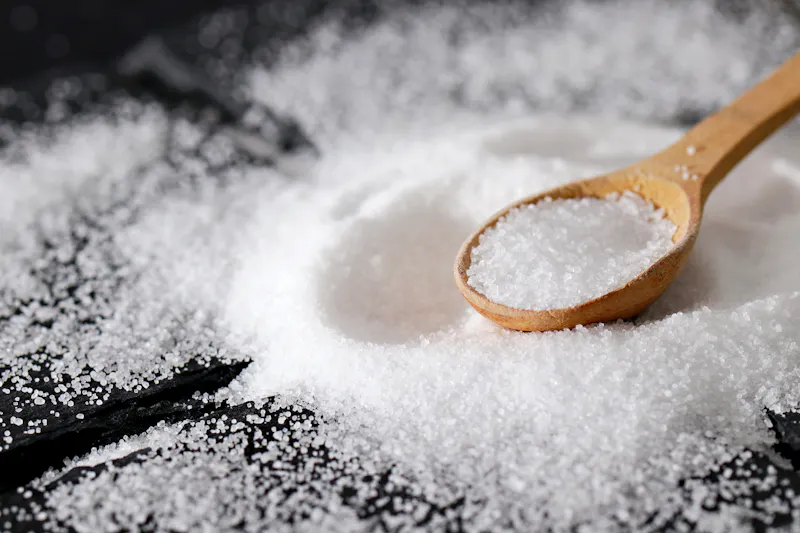High blood pressure (hypertension)
What's covered?


High blood pressure (also called hypertension) is very common in adults. But it’s hard to know if you have high blood pressure as the symptoms aren’t noticeable. It can lead to serious health conditions like heart disease, so it’s important to get it tested regularly. Making small lifestyle tweaks, like getting enough sleep and eating healthy, can help you maintain healthy blood pressure.
What is blood pressure?
Your heart pumps blood around your body. Your blood pressure measures how much blood is being pumped and the force at which it’s pumped around your body. It also measures your blood's resistance when travelling through your blood vessels.
Blood pressure is measured in millimetres of mercury (mmHg) and shown as two numbers:
- the first (and higher) number is systolic pressure — the pressure when your heart pushes blood out
- the second (and lower) number is diastolic pressure — the pressure when your heart rests between beats
An example would be 135/78mmHg. This means 135 systolic over 78 diastolic.
What is high blood pressure?
If your arteries are narrow, your blood meets more resistance as it moves through your body, increasing your blood pressure. This extra pressure strains your blood vessels and organs, especially your heart, brain, kidneys, and eyes. And in the long term, can lead to serious conditions, like heart disease.
Blood pressure can fluctuate and vary for many reasons. But, as broad guidelines:
- ‘normal’ blood pressure is between 90/60mmHg and 120/80mmHg
- low blood pressure is 90/60mmHg or lower
- high blood pressure is 140/90mmHg or higher
If your blood pressure is between 120/80mmHg and 140/90mmHg, then you could be at risk of developing high blood pressure.
It’s important to highlight that everyone’s blood pressure is different. What’s considered high for one person might be normal for another. If you’re unsure, it’s a good idea to talk to your GP.
Our premium omega-3 supplements help to support normal blood pressure levels. But you should speak to your GP first before starting a new supplement.
What causes high blood pressure?
There’s no definite cause for high blood pressure. But you’re at an increased risk if you:
- are over 65 years, your risk increases
- are of African or Caribbean descent
- have a family history of high blood pressure
- are overweight
- eat a diet high in salt
- don’t exercise enough
- don’t sleep enough
- drink too much alcohol
- smoke
The good news is that most of these are lifestyle choices that can be changed.
In some rare cases (1 in 20), high blood pressure can be caused by an existing medical condition or by a specific medicine. These include:
- diabetes
- kidney disease
- an overactive thyroid or underactive thyroid
- the contraceptive pill
- steroids
- some recreational drugs — like cocaine and amphetamines
What are the symptoms of high blood pressure?
In short, there are no clear symptoms of high blood pressure. Even though as many as 1 in 4 adults in the UK will have high blood pressure, most won’t realise it.
Getting tested is the only real way to know whether you have high blood pressure. There are several places to get a blood pressure test:
- at your GP (you don’t have to wait to be offered a test — just ask to see your GP)
- at some pharmacies
- at some workplaces
- at home — using your own home blood pressure kit
What can you do to lower blood pressure?
In many cases, high blood pressure can be lowered by making a few lifestyle tweaks. Below are the top four.
Eat a healthy diet
Eating a balanced diet that’s filled with fruit, vegetables, and lean protein helps. Cutting down on salt also helps, as it raises your blood pressure. You should aim to eat less than 6g of salt a day — about a teaspoonful. Avoiding a lot of processed foods and flavouring your food with spices and fresh herbs can help you reduce your salt intake.
Drink less alcohol
Try to avoid regularly drinking more than 14 units of alcohol a week — equivalent to about a bottle and a half of wine or five pints of beer. It’s also good to space your alcohol intake evenly over 3 or more days and try to have some alcohol-free days as well.
Find out more about how alcohol affects your health.
Get enough exercise
Exercising helps to keep your heart and blood vessels healthy and active, which helps lower blood pressure.
It can also help to lose weight, which also helps to lower blood pressure — as excess weight can overwork your heart as it tries to pump blood around your body.
Get enough sleep
Studies show that not getting enough sleep over a long time can increase your chances of developing high blood pressure.
You should aim to get 6-9 hours of sleep a night.
National Health Service (2019). High blood pressure. Retrieved 28 October 2019 from https://www.nhs.uk/conditions/high-blood-pressure-hypertension/treatment/.